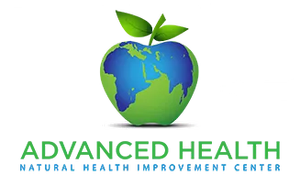A warning on soy
Throughout the past few years, soy has been heralded as a wonderful health food full of protein, and a great alternative for people who do not tolerate dairy products. I feel like it is time to set the record straight.
I too was someone who whole-heartedly believed in the benefits soy foods and drinks could bring. Years ago, I was getting most of my protein content for the day from soy products. After about a year of this, I began to realize that my energy was starting to dwindle. Kind of like a dimmer switch had been turned on and slowly but surely was being dialed down.
I began to look closely at my diet, and realized that I was ingesting a lot of soy. Immediately I started research- ing everything about soy – how it was grown, how it was processed and how it was or was not fermented. Actually, I was shocked at what I found. I would like to educate on the difference between what we have been told by the media, and what is truly found in the research. In order to save room in this article, I will not site my sources. If you would like a list of the resources, please contact me.
Myth #1: Soy foods provide complete protein. The truth is, like all legumes, soybeans are deficient in sulfur containing amino acids (methionine and cystine), and once the beans are processed, their fragile proteins are denatured and for the most part unusable to our bodies.
Myth #2: Soy foods provide vitamin B12 in vegetarian diets. The truth is the compound that resembles B12 in soy cannot be used by the human body; it actually causes the body to require more B12.
Myth #3: Soy estrogens (isoflavones) are good for you. The truth is these isoflavones are endocrine disrupters. They can prevent ovulation and stimulate the growth of cancer cells. Eating as little as 30 grams of soy protein each day can result in hypothyroidism, with symptoms of constipation, weight gain and fatigue.
Myth #4: Soy formula is safe for infants. Soy foods contain inhibitors that inhibit protein digestion and affect pancreatic function. In test animals, this led to stunted growth and pancreatic disorders. Soy also causes an increased need for vitamin D (needed for strong bones and healthy growth), zinc and iron (needed for healthy brain and nervous system development).
In fact, these mega doses of phytoestrogens so early in life have been implicated in the current trend toward increasingly premature sexual development in girls and delayed sexual development in boys. Studies now show that babies fed soy-based formula have 13,000 to 22,000 times more estrogen compounds in their blood than breast fed babies. Infants exclusively fed soy formula receive the estrogenic equivalent (based on body weight) of at least five birth control pills per day. Also, male marmoset monkeys fed soy formula had a 70 percent decrease in testosterone levels. This eventually led to disrupted development patterns, learning disabilities and ADD.
If all of that is not enough to deter you from the soy bandwagon, a major ongoing study involving close to 4,000 elderly Japanese- Americans showed that those who ate the most tofu during midlife had up to 2.4 times the risk of later developing Alzheimer’s disease. In plain terms, soy shrinks the brain.
Throughout my research on the soy subject, however, I have found that fermented soy (tempeh, miso, and nat- to) is actually okay and may even be beneficial in some ways. Needless to say, this is all very concerning, especially for you vegetarians who rely on soy as a protein source on a daily basis. The point is that you should always do your own research. When it comes to your body, you can’t always take someone else’s word for it. And remember to trust your instincts. That little voice is there for a reason.
As always, I am here to give you input on any questions or concerns you may have.

